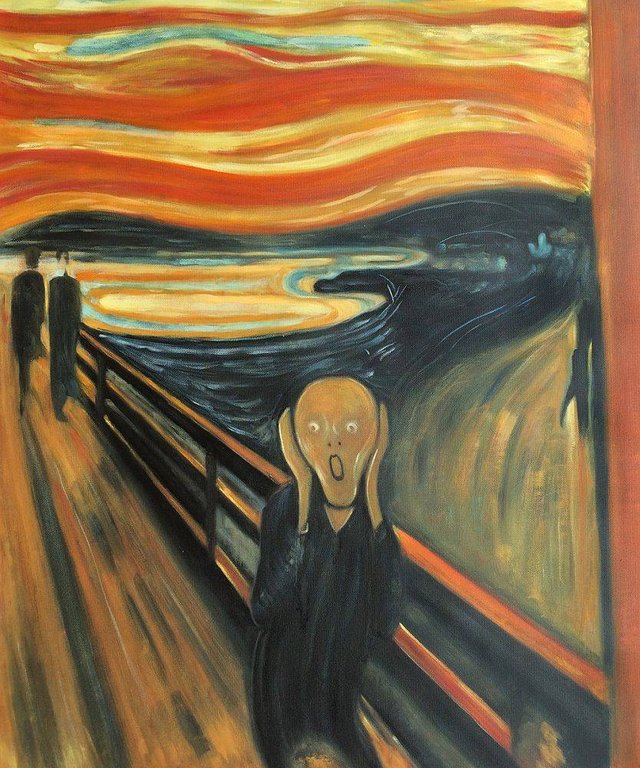Everybody needs philosophical counselling
“You behave as you do for a complicated set of reasons, including biologically fixed personality traits, acquired habits, imposed conditioning, and strong emotion. But you also act according to your reason, experience, belief, principle, and duty - in other words, according to your philosophy of life. Everybody has a philosophy of life, although in many cases their guiding ideas may he implicit, as opposed to explicit. Not everyone is able to articulate their philosophy precisely. The important question is whether your philosophy of life is working for you, or against you, or not at all” (Marinoff 2003: 319).

These words ring true. We all live by some sort of personal philosophy. There are reasons to most things you do. You eat chocolate because you find it pleasing, you drink water because in some sense you know it is good for you. This seems uncontroversial, but once this kind of “reasoning” is applied toward emotions and feelings the same attitude is not always taken. For some reason we think when we wake up feeling like a bus hit us it has nothing to do with reason and everything to do with some (biological) mechanistic failure to produce x in your brain. The famous myth of depression as some chemical imbalance is still spewed by most. Most do not feel uncomfortable by taking some form of medication to counter this myth. No one really questions why they feel this way, some still believe it has something to do with their past. It is because some unconscious memory that still lingers in the back of their mind. Even if this reasoning is true, how will it help my present feeling of depression?
This task of this essay will be to convince you why you need Philosophical Counselling (henceforth PC) and not medication nor any other form of counselling. (This should be read with the pretext that you are mentally stable and are able to form a coherent discussion with someone, if not medication and other forms of counselling will be advised to take.)
Main claim


The main claim of this essay is that everyone has a philosophy of certain kind that compels them to do something. This philosophy is not always explicit, nor is it always understood or “felt” by a person. There are some cases in life where you ask yourself “Why did I just do this?, Why did I drink the extra drink?, etc.” There isn’t always an immediate answer to these types of questions, nor will it help to live your life in such a way as to ask philosophical questions before each decision you make. Life does not always allow you to stand still and ponder about the reasons to do something. This may be the case in some circumstances but most of the time decisions are made on the fly influenced by intuition rather than reason. It is only in retrospect that some of these reasons can be analysed, alone or with someone else. This being said, trying to analyse something which happened so long ago because you believe that event triggers certain feelings (like current depression) seems unreasonable. The question then is, following the main claim stated above, can your current (unexamined) philosophy cause your depression? Or in other words, can your way of life cause your current problems?
A possible answer
A possible answer to this question is that PC can help you discover your own philosophy. When you discover this philosophy by witch you implicitly lived you can study and analyse why you did or do things. “Why did I just eat that extra piece of cake,” can be analysed with reference to your past, influencing your current situation; because your mother let you eat the cake when you were small you still have cravings for cake. Or this can be analysed by looking at your brain, chemicals in your brain are released when you eat the cake, thus your brain released these chemicals which in turn made you eat the cake etc. Or you can look at the act purely as you craving for the sugary taste because you felt like it in that moment. The answer then is simple: your current philosophy (or way of life) caused you to do eat the cake, i.e. your normally cave in when craving sugary treats. This should make more sense to you than to look at a distant past you don’t remember, or by looking at something biological or physiological.
How can this influence something like depression, or feelings of no worth? By looking at some of the things that can cause you depressive feelings you can change your philosophy to accompany a more balanced and better stance toward a problem. Epictetus for example said that “Men are not disturbed by things, but by the views which they take of things.” You cannot change the circumstances, you cannot change the weather, but you can change your attitude towards a circumstance, you can change your attitude towards the weather. This seems like a very simple thing to do, and sometimes it is, but the outcome can be immense. Take for example a case where you feel depressed because of the weather. For weeks you looked forward to spending the day outside in the mountains on a public holiday, because this was the only day you could take off and go to the mountains. Your expectations where high, you looked forward towards the day off in the mountains. But then thunderstorms came in and ruined the day. The days wasn’t ruined, it is only your expectations of the situation that ruined the day. By changing your attitude about the weather, you will lose the depressive feelings. (Lou Marinoff calls this feelings of dis-ease.)
What can PC do about these dis-easiness?


So, why does everybody need philosophical counselling? The answer is simple: to get acquainted with your own personal philosophy. In a PC session you will not be told what your personal philosophy is, you will not be told how to react towards a certain feeling, you will not be told what those feelings of “dis-ease” mean. There is no hierarchy of power in this philosophical session, there is only open dialogue between two people. Socrates was called a midwife of ideas. This is the same with you: you harbour a personal philosophy only you know. It is the duty of the philosophical counsellor to help you “give birth” to this philosophy, or simple to help you recognise and “see” it. When you do this you will know how to change your attitude towards a certain situation appropriately.
Sources/Further Reading
Marinoff, L. 2009. The big questions: How philosophy can change your life. London: Bloomsbury
Congratulations @fermentedphil! You have completed the following achievement on the Steem blockchain and have been rewarded with new badge(s) :
Click on the badge to view your Board of Honor.
If you no longer want to receive notifications, reply to this comment with the word
STOPDo not miss the last post from @steemitboard:
Hello @fermentedphil, thank you for sharing this creative work! We just stopped by to say that you've been upvoted by the @creativecrypto magazine. The Creative Crypto is all about art on the blockchain and learning from creatives like you. Looking forward to crossing paths again soon. Steem on!